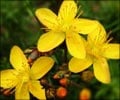Kava is derived from a leafy plant native to the South Sea Islands. It is a herb that has been implicated in approximately 25 cases of liver
Kava is derived from a leafy plant native to the South Sea Islands. It is a herb that has been implicated in approximately 25 cases of liver diseases. The herb is commonly used by consumers as a general relaxant and to treat insomnia, anxiety, stress and muscle spasms. According to experts, the herb behaves like a class of drugs known as benzodiazepines but is not chemically related.
Benzodiazepines have been shown to be habit-forming when taken in high doses or for extended periods of time. While there is evidence of kava overuse or abuse in South Sea Island populations, the herb is largely thought to be non-habit-forming. Alternative medicine experts also say that kava's new association with liver disease is unexpected and has not been witnessed in Pacific Island populations or in many practices in the United States.Canadian health officials are warning consumers to stop using kava. "Consumers are advised to check the labels of any herbal products for the presence of kava, and to discontinue use of any product labeled to contain kava," the federal regulatory agency Health Canada says in a statement.
Switzerland has already prohibited the sale of supplements containing kava, also known as kava kava, and Germany is considering a ban, as well. While the United States has yet to issue such a ban, the FDA is currently investigating claims of kava-induced disease. Christine Lewis Taylor, director of the FDA's Office of Nutritional Products Labeling and Dietary Supplements, has already asked liver experts to explore the possibility that kava use could be associated with liver disease.










